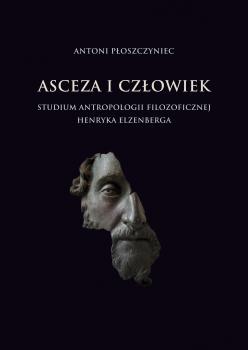Asceza i człowiek : studium antropologii filozoficznej Henryka Elzenberga
Keywords:
Henryk Elzenberg, asceticism, axiologySynopsis
ASCETICISM AND MAN. PHILOSOPHICAL ANTHROPOLOGY STUDY OF HENRYK ELZENBERG
The main goal of the dissertation is to reconstruct the philosophical anthropology of Henryk Elzenberg, with a particular emphasis on his concept of asceticism. In other words, the main task of the dissertation is a systematic and overall reconstruction of Elzenberg’s philosophy on man viewed through the concept of asceticism, which plays a fundamental role in the philosophy of the author of The Trouble With Existence (not only in his philosophical anthropology). Moreover, the aim of this work is to justify the thesis that asceticism has a culture-creative function, and culture has a paideutic character, because people realise their humanity in culture and through culture. The dissertation utilizes the reconstructive method, descriptive method, problem analysis, conceptual analysis, language analysis and the phenomenological method. Henryk Elzenberg’s handwritten manuscripts, stored within the Archives of the Polish Academy of Sciences, are a significant part of research materials (general signature: III-181).
Chapters
-
TABLE OF CONTENTS
-
Wprowadzenie .......... 15
-
ROZDZIAŁ 1. ŻYCIE I FILOZOFIA WARTOŚCI ELZENBERGA .......... 25
-
1.1. Szkic biograficzno-osobowościowy .......... 25
-
1.2. Zręby aksjologii Elzenberga .......... 36
-
ROZDZIAŁ 2. PESYMIZM, AUTOCENTRYZM, NATURA LUDZKA .......... 49
-
2.1. Pesymizm i jego odmiany .......... 49
-
2.2. Natura ludzka i autocentryzm .......... 70
-
2.3. Granice pesymizmu Elzenberga .......... 104
-
ROZDZIAŁ 3. ROLA I ISTOTA ASCEZY W FILOZOFII ELZENBERGA ORAZ INSPIRACJE ELZENBERGOWSKIEGO ASCETYZMU .......... 109
-
3.1. Pesymizm, perfekcjonizm, wyrzeczenie .......... 109
-
3.2. Definicja wyrzeczenia, etyki wyrzeczenia i ascezy .......... 118
-
3.3. Historyczne inspiracje Elzenbergowskiej etyki ascetycznej .......... 126
-
ROZDZIAŁ 4. REKONSTRUKCJA STRUKTURY ASCEZY WEDŁUG ELZENBERGA ORAZ ANTROPOLOGICZNYCH WARUNKÓW MOŻLIWOŚCI ASCEZY .......... 139
-
4.1. Część ogólna analityki struktury ascezy .......... 139
-
4.2. Część szczegółowa analityki struktury ascezy .......... 148
-
4.3. Antropologiczne warunki możliwości ascezy według Elzenberga .......... 174
-
Rozdział 5. Kultura – jej istota, tworzenie i ascetyczny charakter .......... 191
-
5.1. Istota i wartość kultury .......... 191
-
5.2. Tworzenie kultury .......... 211
-
ROZDZIAŁ 6. KULTURA, PAIDEIA I CZŁOWIECZEŃSTWO .......... 241
-
6.1. Paideutyczny charakter kultury .......... 241
-
6.2. Elzenbergowska koncepcja człowieczeństwa .......... 251
-
6.3. Nauka i religia, czyli zagrożenie i alternatywa dla kultury .......... 272
-
ROZDZIAŁ 7. ZAKOŃCZENIE .......... 289
-
7.1. Podsumowanie .......... 289
-
7.2. Perspektywa dalszych badań .......... 293
-
7.3. Człowiek jako istota namiętna i zahamowana. Miejsce Elzenberga w polskiej filozofii człowieka .......... 296
-
Bibliografia .......... 301
-
Indeks osobowy .......... 317
Downloads
References





